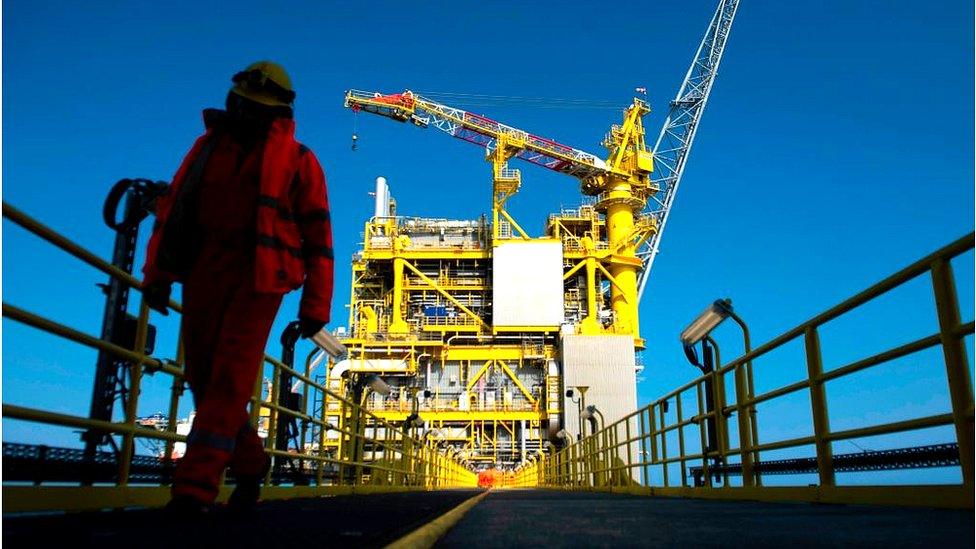'People think oil workers are fine but we're not'
- Published
Covid in Scotland: The impact on one oil and gas worker
Oil worker Wullie Kirkcaldy lost his job when the Covid pandemic hit and did not qualify for furlough payments, leaving him to rely on Universal Credit.
"Out of the blue, I got a letter saying that my job had been terminated," he says.
The solids control engineer lives in Ellon, a small town just 30 minutes drive from Aberdeen, Scotland's oil and gas industry capital.
However, Wullie had been working in Australia before the pandemic.
When lockdown hit in March last year he was on leave and the pandemic prevented him from rejoining the rig crew in Australia.
At that moment, Wullie found himself in a state of panic.
"How am I going to survive? What's going to happen? How am I going to pay bills?", he says.
"You're used to a monthly wage coming in…to nothing."
Wullie's contract, like thousands of other offshore workers, deems him ineligible for the furlough scheme in the UK. And because he is not a citizen in Australia, the country where he works, he cannot receive support there either.
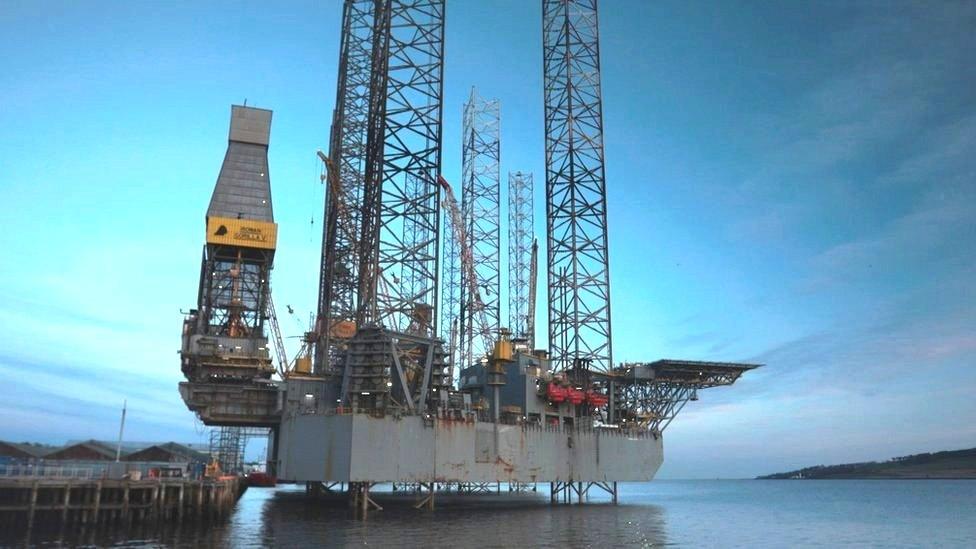
A crash in oil prices and the pandemic has hit the oil industry
Wullie is now reliant on Universal Credit to support his wife and two younger children. It pays less than a third of what he used to make. He says he has never had to rely on government support before.
"I feel sorry for my kids because [other] kids can be cruel sometimes," Wullie says. "Especially [for] my oldest daughter. She tries to hide that [she's on free school meals] from her chums."
Wullie says he used to give his daughter money to have lunch with her school friends which she would spend on sandwiches and drinks etc but he had to stop because he did not have the funds. It got to the stage that his daughter tried to "save face" by skipping lunch altogether.
"She wasn't eating at dinner time so she'd come home and she'd be starving," Wullie says. "It's heartbreaking. There are some mornings you think, 'what's going on? What went wrong?'."
Since the first lockdown, Wullie's money worries have had an impact on his mental health.
"I've been to the doctors," he says. "I've been told that I've got anxiety so I take medication for that.
"It's [the] pressure of paying bills. Where's the next money coming from? You've got people on the phone. It's horrible. And I know I'm not the only one who's in that position. There's probably hundreds of guys in the same position I'm in."
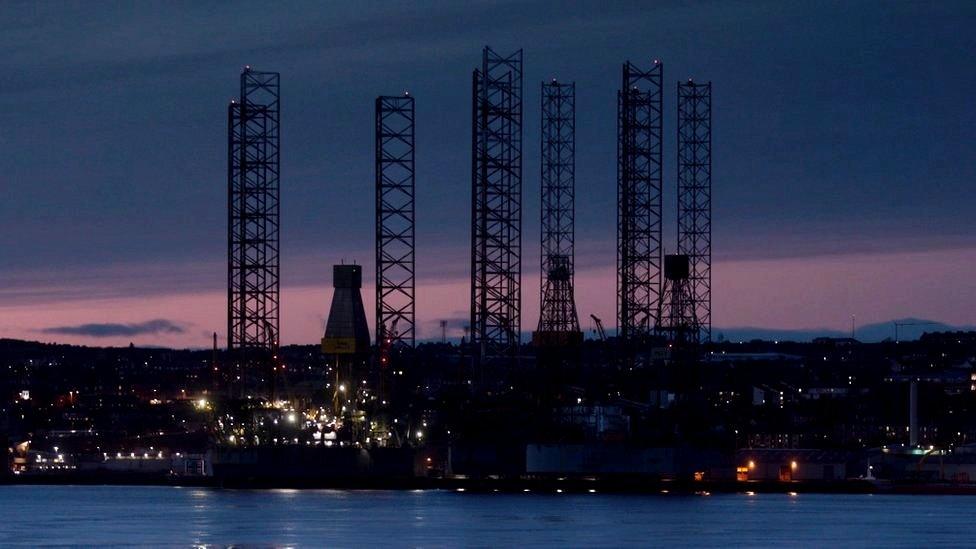
A fifth of oil and gas firms expect more redundancies in 2021
Being off work for so long has also taken its toll on the family dynamic, Wullie says.
"You're so used to being away for a month and then you're back into family life.
"And because I am here, I am interfering with family life. It's a strange thing to say but when you work offshore you could be away for six months of the year. I'm home and I am upsetting the equilibrium."
Wullie is concerned that the longer he is away from work, the tougher it will be to get back into employment.
Offshore workers require tickets and medicals to operate. These courses and certificates cost hundreds of pounds and, Wullie says, they are becoming too expensive to renew.
"If I don't have those tickets then I am unemployable to the oil and gas industry," he says.
Grim predictions
According to a report by Aberdeen and Grampian Chamber of Commerce, about a fifth of oil and gas firms expect more redundancies in 2021. This follows Oil and Gas UK's earlier warning that 30,000 jobs could be lost as a result of the coronavirus pandemic and the low oil price.
Despite these grim predictions, Wullie believes that people do not sympathise with oil workers because of what they supposedly earn.
"There is a stereotype where we earn megabucks and live like Hollywood stars but that's rubbish," he says.
"The way things are now, the day rates are all down. It's not much more than what a joiner or a brickie is getting. It's not big money."
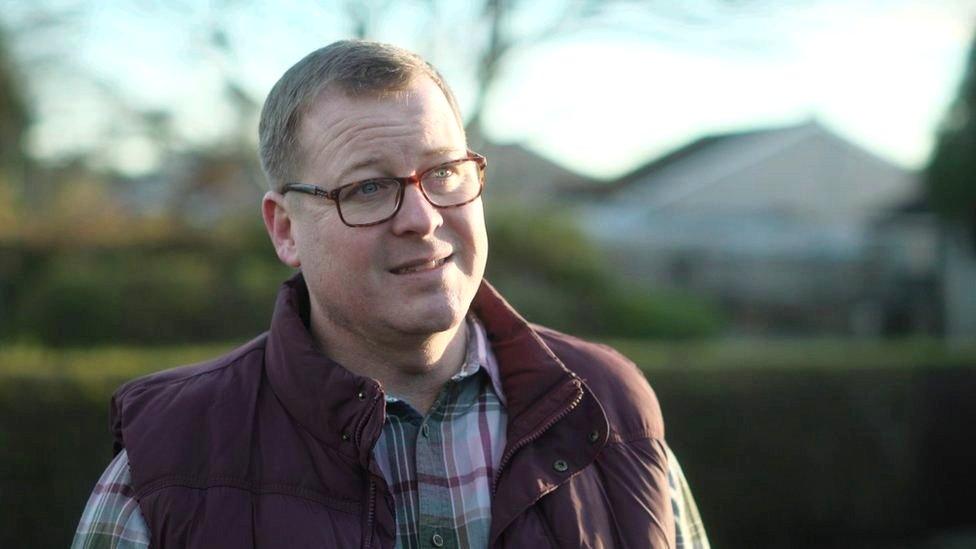
Consultant drilling fluid engineer Paul Duncan was told to shield last year
In April last year, consultant drilling fluid engineer Paul Duncan was told to shield due to his underlying health condition. Despite no longer having to shield, he has been unemployed since losing his job, despite regularly applying for offshore roles.
"Unfortunately, as a consultant, you're very easily let go," Paul says. "The combination of the price slump and the global pandemic has just been cataclysmic on the opportunities that are available for you."
Like many oil contractors, Paul has fallen through the cracks. He worked for a Dutch company and paid tax there. Because he is not a Dutch citizen and did not pay tax in the UK, he cannot access any financial support.
"Financially, it's really hard," he says. "I was really struggling to think how I was going to get through [Christmas] and I've not been sleeping particularly well. I'm sure I'm not the only one."
Paul worries that oil workers, by their very nature, are less likely to get help if they are struggling emotionally.
"I do have real concerns for the guys out there because we're not known particularly for stretching out that hand and asking how people are," he says.
What next?
Since speaking with Wullie, he has recently received good news that he will temporarily return to offshore work in the North Sea.
Paul Duncan, like thousands of offshore workers, is still waiting to be redeployed.
Disclosure's The Price of the Pandemic is on BBC One Scotland on Monday 1 February at 19:35
- Published1 February 2021
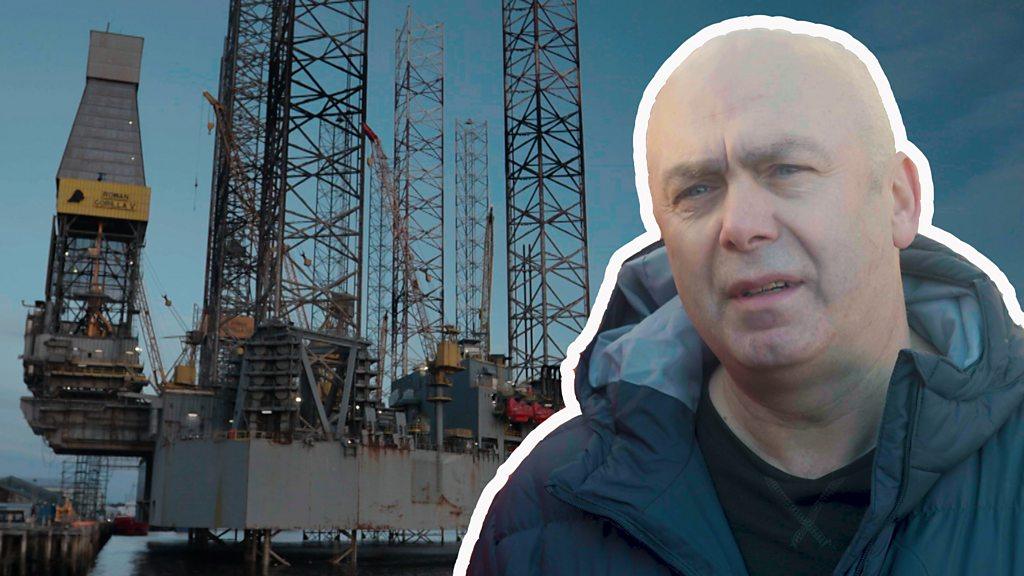
- Published25 November 2020
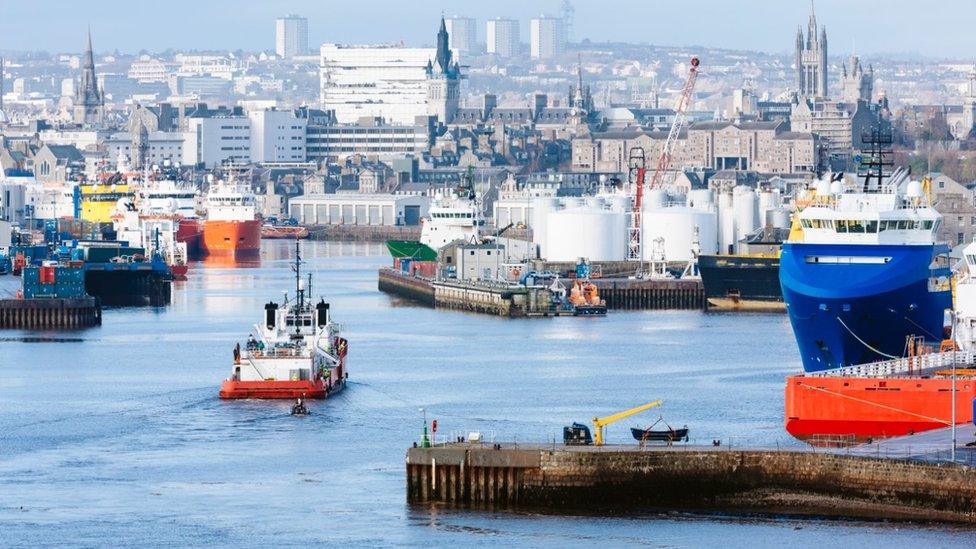
- Published27 October 2020
